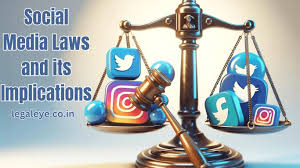
uHHHHHHHHHHHHHHH
- Teacher: RUGAMBA Amani David

This module introduces students to the principles, practices, and technologies of online journalism within the context of modern mass communication. It explores how digital platforms have transformed news production, distribution, and audience engagement. Students will learn to research, write, edit, and publish multimedia stories for the web, using various digital tools and platforms.
- Teacher: ALBERT FILS NZAYURUGO

This course explores the principles and practices of journalism in the digital age, equipping students with the skills to research, write, and produce compelling news content for online platforms.
- Teacher: ALBERT FILS NZAYURUGO
This course explores the principles and practices of journalism in the digital age, equipping students with the skills to research, write, and produce compelling news content for online platforms.
- Teacher: ALBERT FILS NZAYURUGO

This course exposes students to historical eveolution of mass communication theories ranging from powerful effect, modernate effect, negotiated meaning, cultural studies and critical political economy. it helps rthe student appreciate mass communicatio. theories tries to understandand explain social dynamics.
- Teacher: Dr Mwangi Haron

This course exposes students to historical eveolution of mass communication theories ranging from powerful effect, modernate effect, negotiated meaning, cultural studies and critical political economy. it helps rthe student appreciate mass communicatio. theories tries to understandand explain social dynamics.
- Teacher: Dr Mwangi Haron
The Development Communication course explores the pivotal role of communication in the development process, particularly in tackling socio-economic challenges and enhancing key sectors such as education, health, and agriculture. It emphasizes the significance of communication in driving sustainable development and fostering positive change within communities. Through a blend of theoretical insights and practical approaches, the course equips learners with the knowledge to promote social transformation, influence public policy, and engage communities at the grassroots level. Students will be introduced to both traditional and contemporary communication methods, with a strong focus on crafting audience-centered strategies that are culturally relevant and effective.
Objectives:
- Understand the importance of communication in the development process and its role in facilitating social change.
- Analyze how different communication strategies and how media affects development outcomes in various sectors such as education, health, and agriculture.
- Apply theoretical frameworks of development communication in real-life scenarios to address pressing issues within communities.
- Evaluate the effectiveness of communication tools and strategies in promoting development and social transformation.
- Create communication plans and campaigns that cater to diverse audience needs, ensuring sustainability and long-term impact.
Learning Outcomes:
- Recall the key concepts and definitions related to development communication.
- Explain the theoretical frameworks of development communication, such as participatory communication, diffusion of innovations, and behavior change communication.
- Implement media strategies that integrate both traditional and digital communication tools
- Critically assess communication campaigns and their impact on development goals.
- Evaluate the effectiveness and efficiency of different communication methods in achieving sustainable development.
Academic Year 2024-2025
Lecturer: David NDEMEZO
- Teacher: content creator

This course explores the principles and practices of journalism in the digital age, equipping students with the skills to research, write, and produce compelling news content for online platforms. Key topics include digital storytelling through multimedia, SEO strategies for audience engagement, effective use of social media, and navigating ethical considerations such as misinformation. Students will also explore the impact of emerging technologies like artificial intelligence and data journalism. Through practical assignments and collaborative projects, participants will build a portfolio demonstrating their ability to create accurate and engaging online content, preparing them for success in modern newsrooms.
Learning Outcomes:1. Knowledge and Understanding:
By the end of the Module learners should:
- Demonstrate an understanding of the core principles of journalism in the digital age, including the role of multimedia in storytelling.
- Explain the importance of search engine optimization (SEO) and audience engagement in online content creation.
- Analyze the ethical considerations in online journalism, particularly related to misinformation and verification.
2. Skills:
- Research and produce compelling news articles suitable for online platforms, incorporating various multimedia elements.
- Utilize social media effectively for news distribution and audience interaction.
- Apply emerging technologies, such as artificial intelligence and data journalism, to enhance storytelling and reporting.
- Develop a diverse portfolio that showcases a range of online content, demonstrating accuracy, engagement, and adherence to ethical standards.
- Collaborate with peers on projects that simulate real-world newsroom environments, enhancing teamwork and communication skills.
Course Code: BMAC 2305
Credits: 10
Academic Year 2024-2025
Lecturer: Zuhura WAMBUI
- Teacher: content creator

- Teacher: Jean Baptiste HATEGEKIMANA

